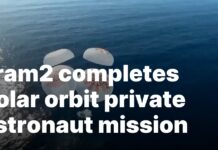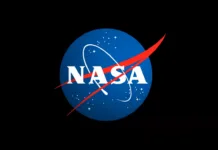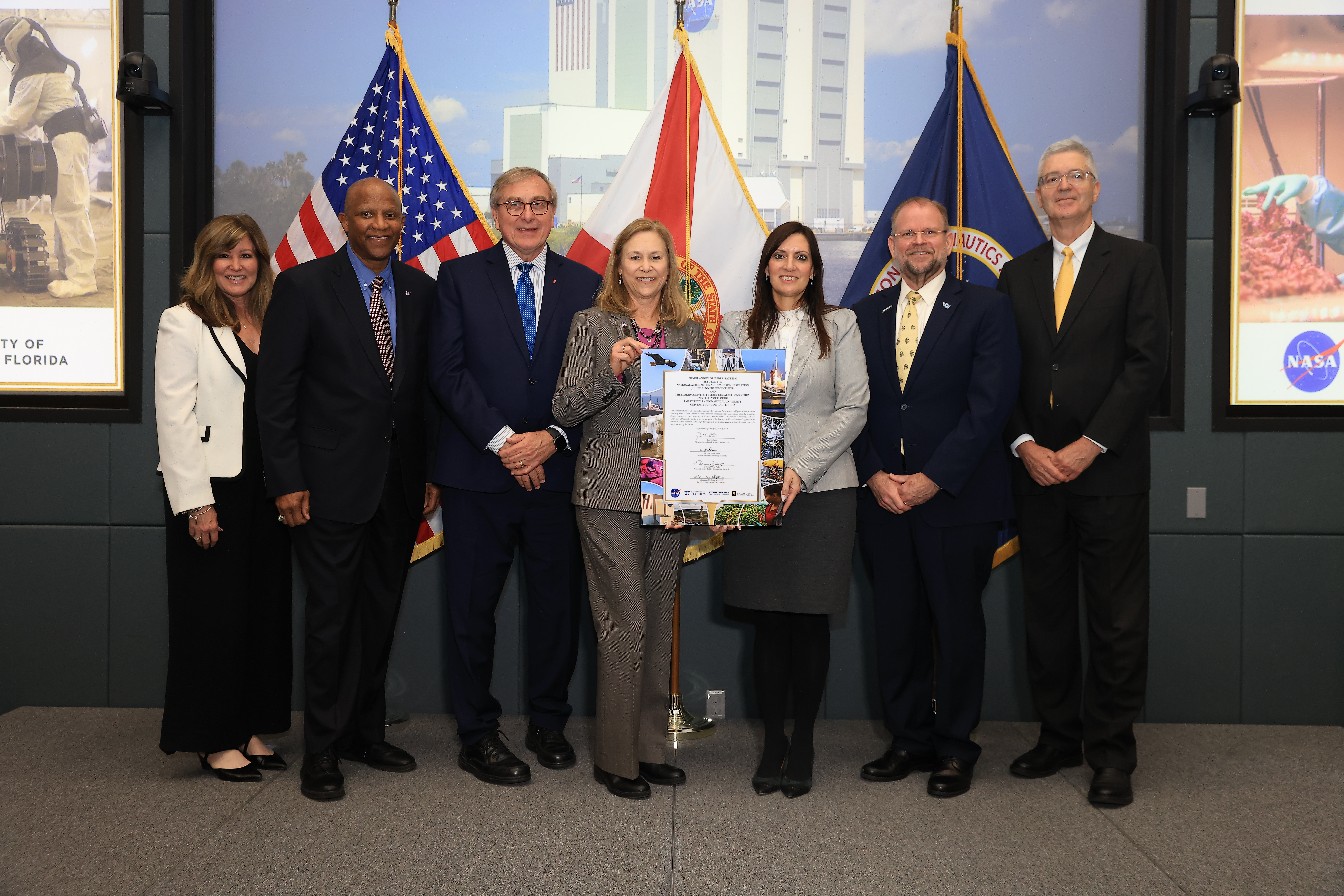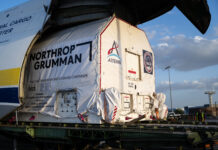NASA’s Kennedy Space Center Expands Research Horizons with Florida University Space Research Consortium
The landscape of research and technology at NASA’s Kennedy Space Center in Florida is set to grow, following a significant development announced on Wednesday. Kennedy’s center director, along with key members of the Florida University Space Research Consortium, formalized a partnership by signing a memorandum of understanding. This collaboration is aimed at bolstering research and development efforts, supporting NASA’s ambitious Moon to Mars exploration strategy.
In a ceremony held at the Kennedy Space Center, officials from the newly designated state space research entity, NASA executives, and other distinguished guests gathered to witness this momentous occasion. The event underscored the importance of this partnership, which is poised to drive advancements in research, technology development, education, and communication between the renowned spaceport and Florida’s burgeoning space industry.
NASA Administrator Bill Nelson expressed his enthusiasm for the partnership, stating, “Through this agreement, NASA will benefit in new and exciting ways from our longtime partnership with the universities that make Florida shine. As we move deeper into this golden era of space exploration, a new generation of thinkers and leaders will lead the way – thinkers and leaders like the researchers, faculty, and students of the Artemis Generation, whom we are pleased to work with through the consortium.”
The establishment of the Florida University Space Research Consortium is the culmination of over a year of concerted efforts by leaders at Kennedy Space Center, the University of Florida, the University of Central Florida, and Embry-Riddle Aeronautical University. This agreement not only marks the official beginning of collaborative activities but also positions Florida as the only state with a university consortium directly affiliated with a NASA center.
Florida Governor Ron DeSantis, who was present at the event, commented, “It was great to visit the Space Coast Jan. 8 to announce the Florida University Space Research Consortium—our state’s official space research entity. Home to a thriving aerospace industry and world-class higher education institutions, Florida is the ideal place to launch this initiative. We are primed to lead the nation in developing a blueprint for state-space partnerships into the future.”
The primary mission of the consortium is to cultivate a mutually beneficial relationship between NASA Kennedy and Florida’s universities, aiming to drive innovation in space exploration, research, and technology. This will be achieved through academic collaborations, joint projects, and workforce development initiatives.
Lieutenant Governor Jeanette Nuñez highlighted the significance of this development, stating, “The launch of the Florida University Space Research Consortium is a significant milestone for our state’s aerospace sector, bringing together our world-class education system with cutting edge research and development. This consortium will undoubtedly further strengthen and deepen Florida’s position as the leader in the global aerospace economy.”
The memorandum of understanding signifies the beginning of a new era of collaboration between the Florida spaceport and the state’s university system. It initiates with the involvement of three charter universities and plans to expand to include other state universities interested in participating. Enhancing research and technological collaboration with universities has been a priority for NASA, and similar efforts have been successful at other NASA centers across the United States.
For instance, while Kennedy Space Center is the first to affiliate with a university consortium, NASA’s Ames Research Center in California has partnered with the University of California, Berkeley, to develop the Berkeley Space Center at NASA Research Park. This project, still in the developmental phase, is envisioned as a 36-acre hub of discovery and innovation, complete with educational spaces, laboratories, offices, student housing, and a new conference center. More recently, NASA’s Johnson Space Center in Houston joined forces with Texas A&M University to initiate the construction of a facility that will serve as a testing laboratory for equipment being developed for NASA’s Moon to Mars plans. Kennedy Space Center Director Janet Petro, who signed the consortium agreement, was also present at this groundbreaking event.
“This agreement is a shining example of what it looks like when we link arms and create a space for the whole to be greater than all our parts,” said Petro. “This symbiotic partnership paves the way for collaborative research opportunities and increased access to advanced technology, significantly enhancing NASA’s research output in fields such as aerospace engineering, materials science, robotics, and environmental science. These are all critical for the long-term human exploration as we learn to live and work deeper into space than ever before.”
The formation of the Florida University Space Research Consortium not only strengthens the existing ties between NASA and Florida’s academic institutions but also sets a precedent for future collaborations that could reshape the landscape of space research and exploration. With this partnership, NASA is poised to harness the intellectual and innovative power of Florida’s universities, propelling the United States into a new era of space exploration and technological advancement.
For more information, you can visit the official NASA Kennedy Space Center website at [https://www.nasa.gov/kennedy](https://www.nasa.gov/kennedy).
For more Information, Refer to this article.


































![Samsung’s Breakthrough Fuels Progress in Science and Industry: Interview How Samsung’s Engineering Feat Became a Catalyst for Scientific and Industry Advancement [Interview on Real Quantum Dots Part 2.]](https://www.hawkdive.com/media/samsung-tvs-and-displays-samsung-quantum-dots-technology-qled-tvs-quantum-dots-experts-interview-par-218x150.jpeg)